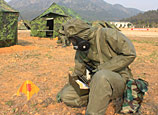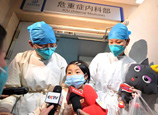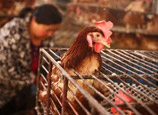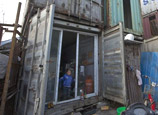
 |
| The pagoda where the remains of Xuanzang, a prestigious Chinese Buddhist monk and traveler, was buried. (China Daily) |
The monks said they support the program, but they do not want to remove so many buildings, which will affect their daily religious life because different sections of the temple have their own functions, according to a report in Nanfang Metropolis Daily.
"Actually, the different suggestions from the two sides reflect two conceptions in terms of cultural relic protection," said Pang Shouyong, a professor of Minzu University of China in Beijing.
In order to keep an original image of the temple, mainly the pagoda built during the Tang Dynasty (618-907), it is reasonable that the government wants to move out other buildings, and experts also did many jobs for the planning, he said.
But those other buildings, built in later periods, such as those from the Qing Dynasty (1644-1911) or modern China by monks in the temple, have become important parts of the temple, said Pan, who is an expert in cultural relic preservation.
Without efforts from monks in different periods, the pagoda could not have been preserved, he said.
"The two sides should carefully discuss the project and candidly express ideas for the plan of the preservation," Pan said.
Wang, from the Chang'an district government, said it will arrange for the monks' accommodation during the removal project.
Wang also said the temple area will become larger, and a parking lot will be built in front of the temple.
Previous reports said the construction and planning of a project to build Xingjiao Temple as a tourist destination was conducted by Daming Palace Investment Group, a company in Xi'an.
According to a government statement, the temple area will be divided into four sections for tourism development.
However, the company announced in a statement on its website that the company is not involved in the temple's preservation project.
A male worker from the company who did not want to give his name said on Wednesday the company participated in the early planning, but the project was later transferred to the district government.
Lu Hongyan in Xi'an contributed to this story.

















 Photo: Bird flu fears hits poultry industry
Photo: Bird flu fears hits poultry industry


![]()
